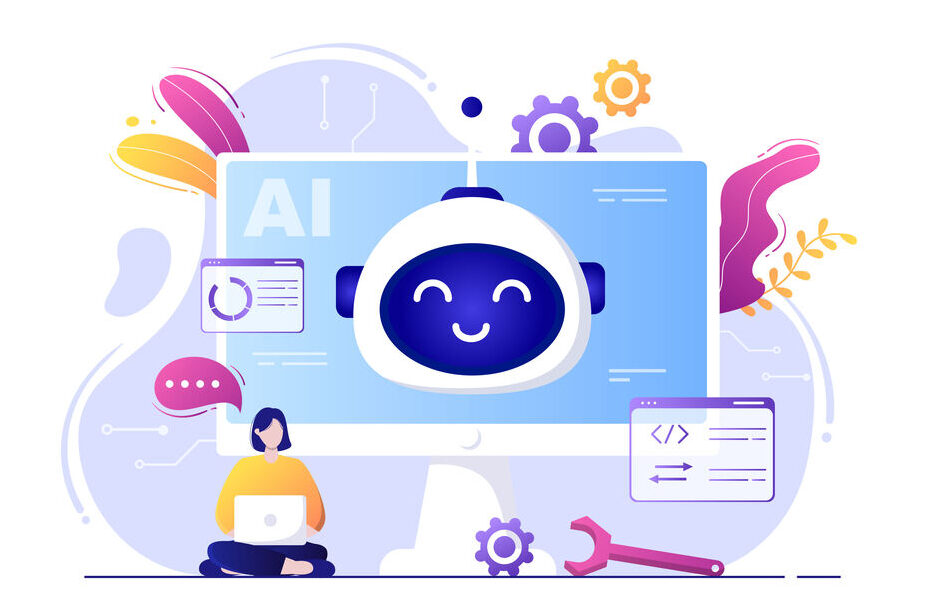Effective Marketing Automation Strategies for Boosting Engagement and ROI
Measuring ROI through marketing automation is crucial for understanding the effectiveness of marketing initiatives.

The integration of AI into various aspects of SaaS businesses is revolutionizing the industry and opening up new opportunities for growth, efficiency, and customer satisfaction. Key trends such as Natural Language Processing, Machine Learning, AI-driven automation, personalization, AI-powered cybersecurity, and AI-integrated CRM solutions are shaping the future of SaaS.
Artificial Intelligence (AI) and Software as a Service (SaaS) are two of the most transformative technologies in today’s digital landscape. AI, the simulation of human intelligence by machines, has been making waves across various industries, revolutionizing the way we interact with technology and automating tasks that were once exclusively performed by humans.
On the other hand, SaaS, a software licensing and delivery model, has disrupted traditional software distribution by providing cloud-based access to applications, eliminating the need for on-premise installations and costly maintenance.
As these two technological juggernauts continue to evolve and make strides, their paths have started to converge, creating a powerful synergy that is redefining the way SaaS businesses operate.
By leveraging AI, SaaS companies can not only elevate their offerings but also improve customer experience, streamline operations, and gain a competitive edge in the ever-changing tech landscape.
In this blog post, we will explore the latest trends in Artificial Intelligence and how they are impacting the world of SaaS businesses. From natural language processing and machine learning to AI-driven automation and cybersecurity, we will delve into the innovative ways AI is shaping the future of SaaS and what it means for businesses in this space.
Natural Language Processing (NLP) is a subfield of AI that focuses on enabling computers to understand, interpret, and generate human language. It combines techniques from computer science, linguistics, and machine learning to analyze and process text or speech data, making it a powerful tool for various applications.
In the context of SaaS businesses, NLP has become increasingly popular as companies recognize its potential to enhance their services and optimize user experience. Some common use cases include:
By harnessing the power of NLP, SaaS businesses can greatly improve user experience and customer satisfaction in several ways:
As the field of NLP continues to advance, its applications in the SaaS industry will only grow more diverse and impactful. By staying current with the latest developments in NLP and integrating them into their services, SaaS businesses can unlock new opportunities for growth and customer engagement.
Machine Learning (ML), a subset of AI, involves the development of algorithms that enable computers to learn from and make predictions based on data. Predictive analytics, on the other hand, is the process of using data, statistical algorithms, and ML techniques to identify patterns and forecast future outcomes or trends. These two concepts go hand-in-hand, allowing businesses to uncover valuable insights and make data-driven decisions.
SaaS businesses are increasingly using ML and predictive analytics to gain a deeper understanding of their users’ behavior and preferences.
By analyzing vast amounts of data, they can identify patterns and trends that help them enhance their offerings, optimize user experience, and ultimately drive customer retention and growth. Some common applications include:

Automation has long been a cornerstone of the SaaS industry, helping businesses streamline workflows, reduce costs, and increase efficiency. With the advent of AI, automation capabilities have reached new heights, as machines can now learn from data and perform tasks with minimal human intervention.
AI-driven automation is transforming various aspects of SaaS businesses, including:
By embracing AI-driven automation, SaaS businesses can not only enhance their services but also gain a competitive advantage in the ever-evolving technology landscape. As AI continues to advance, the potential for automation in the SaaS industry will only grow, unlocking new opportunities for efficiency and innovation.
In today’s competitive digital landscape, personalization and customization have become crucial differentiators for SaaS businesses. Users increasingly expect tailored experiences that cater to their unique needs and preferences, making it essential for companies to adapt and deliver software products that resonate with individual users.
A one-size-fits-all approach is no longer sufficient in the world of SaaS. Customers are seeking software solutions that can be customized to their specific requirements, workflows, and goals. This growing demand for personalization stems from several factors:
AI plays a pivotal role in enabling SaaS businesses to deliver tailored solutions for individual users. By harnessing the power of AI, companies can gain valuable insights into their customers’ preferences, needs, and pain points through AI-driven analytics tools that track and analyze user behavior patterns.
With this information, SaaS businesses can segment their users based on various criteria, such as demographics, usage patterns, or industry verticals, allowing them to better understand and cater to their unique needs.
Armed with a deeper understanding of their users, companies can leverage AI to deliver personalized content, product recommendations, and targeted marketing campaigns, ensuring a tailored experience that resonates with each user segment and drives customer satisfaction and loyalty.
Several SaaS companies have embraced AI-driven personalization and customization, reaping the benefits of increased customer satisfaction and loyalty. Some notable examples include:
By staying current with the latest advancements in AI and integrating them into their personalization strategies, SaaS businesses can unlock new opportunities for growth and customer engagement in an increasingly competitive market.
As SaaS businesses continue to grow and store vast amounts of sensitive data, the need for robust cybersecurity measures becomes increasingly crucial. AI-powered cybersecurity solutions are emerging as a powerful tool to help protect businesses from potential threats, ensuring the safety and security of their digital assets.

The increasing reliance on cloud-based services has made SaaS businesses an attractive target for cybercriminals. Consequently, ensuring the security of customer data and maintaining trust is of paramount importance. The key factors driving the need for advanced cybersecurity measures in the SaaS industry include:
AI is transforming the way SaaS businesses approach cybersecurity by offering advanced solutions that can proactively identify, analyze, and respond to threats. Some of the ways AI is enhancing cybersecurity include:
Customer Relationship Management (CRM) is a vital component of any successful SaaS business, as it helps companies manage customer interactions, streamline processes, and improve relationships. By integrating AI into CRM systems, businesses can unlock new levels of efficiency, personalization, and data-driven decision-making.
AI-driven CRM solutions offer a range of advantages for SaaS businesses, including:
Many SaaS companies have recognized the benefits of AI-integrated CRM solutions and are leveraging them to improve customer relations and drive growth. Some notable examples include:
As AI continues to advance, its applications in cybersecurity and CRM will become increasingly significant for SaaS businesses. By staying current with the latest developments and integrating AI-driven solutions into their operations, companies can enhance their security posture, improve customer relationships, and gain a competitive edge in the rapidly evolving SaaS landscape.
In conclusion, the integration of AI into various aspects of SaaS businesses is revolutionizing the industry and opening up new opportunities for growth, efficiency, and customer satisfaction.
Key trends such as Natural Language Processing, Machine Learning, AI-driven automation, personalization, AI-powered cybersecurity, and AI-integrated CRM solutions are shaping the future of SaaS, enabling companies to deliver more tailored, secure, and efficient services to their users.
As technology continues to advance, it is crucial for SaaS businesses to stay current with the latest developments in AI and leverage these innovations to enhance their offerings and maintain a competitive edge in the market.
By embracing AI-driven solutions and strategies, SaaS companies can not only improve their operations but also create a more engaging, personalized, and secure experience for their customers, ultimately driving long-term success and growth in an increasingly competitive digital landscape.